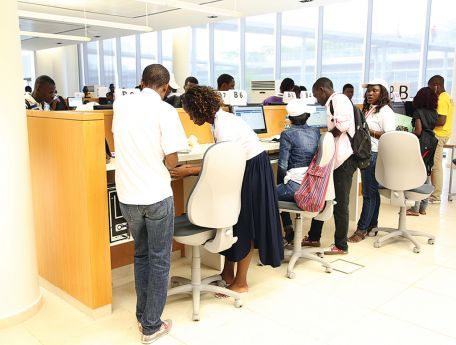
I. Background
The World Health Organization has declared the COVID-19 as a global pandemic. This
situation has forced most of the globe, including Africa to adopt new numerous social protection
measures such as school closures. Preoccupied by the increasing vulnerability of girls in
Africa, the AU/CIEFFA has organized multi-stakeholder Webinars on “Addressing impacts of
COVID-19 Pandemic on Girls and Women’s Education”.
II. Participation
Experts from African Union (AU) Education and Gender Ministries as well as representatives
of RECs, CSOs, Traditional and Religious Leaders, AU/CIEFFA focal points,
Youth/AU/CIEFFA’s Alumni network, Researchers and Development partners attended the
webinar series. Broken down into two-parts, the first webinar held on May 7th, invited the
Anglophone community with Dr Rita Bissoonauth as moderator. The second, targeting the
Francophone community took place on May 19th with Mrs Simone Yankey-Ouattara as
moderator.
III. African Union Members States’ response on the impacts on Girls’ Education
a. Strategies developed and implemented by Member States
The pandemic has widened existing inequalities in the education systems. Prior to COVID-19,
girls in particular, recorded the lowest enrolment rates and remain the most vulnerable under
the current crisis. Some of these girls were already affected by continued conflicts and poverty,
lack of adaptability with ICTs in education, inadequate infrastructure and ineffective gender
sensitive policies. Schools represent a refuge and symbolize a safe space for girls, and
because of school closures, many learners now resort to bartering in the informal sector,
farming for livelihoods and domestic chores. Other learners risk exposure to harmful practices
such as early and forced marriage, physical and sexual assaults, early pregnancy, female
genital mutilations and resort to transactional sex and prostitution.
The crisis has equally discouraged girls, dimming their hopes of succeeding through school.
Parents with few means of livelihoods, alternatively pressure their girls into looking for more. If
left unchecked, this situation will increase dropout rates of girls from schools.
AU Member States and respective Ministries of Education shed light on their key approaches
in order to restrain COVID-19 related impacts on educational systems. Such approaches
include:
Establishing key response structures:
A High
-Level Task Force and an
Emergency Committee established in
collaboration with development partners,
ministries of health and donors. These
structures strive to avoid duplication and
ensure coordination of action and
programmes of stakeholders to best
address issues faced by the most
vulnerable groups of learners especially,
adolescent girls.
Gender responsiveness:
A key
framework on gender mainstreaming is
established, integrating a gender
dimension in all responses providing
basic & preventive information and
services to meet girls’ and women’ needs.
In order to tackle SGBV, a male
involvement strategy has been setup with
a one stop Response centre against
SGBV and a rape emergency call centre.
Continuous Information & Education:
Efforts are deployed to disseminate
reliable messages on TV, radio and social
media to address education & health
concerns of learners, parents and
guardians. The focus is preventing GBV,
HIV, STI, teenage pregnancy and
promoting Menstrual and Hygiene
Management (MHM
) and psycho
-social
support amongst others.
Learners without
internet or radio are receiving hard copy
school materials to reduce learning gaps.
Radios distributed to parents and
caregivers in remote areas, as teachers
are actively dispensing radio learning
programs to facilitate distance learning.
Framing of the response:
Furthermore,
ministries of Education developed a
recently harmonized Learning Framework
with learning packages in core
subjects/themes to support learning for
learners at primary and secondary
education levels. In the implementation of
this Framework, local governments and
parents are actively engaged with an
emphasis on deriving benefits for girls and
young women.
Re
-opening every school:
AU Member
States’
mid to long term approaches aim
for schools’ re
-opening. These include
tracking all learners, launching a
campaign to bring back learners,
providing remedial classes for slow
learners and cash transfers for out
-of
-
school girls while considering classroom
congestion. More measures comprise of
capacity building training for Ministries of
Education and key stakeholders in the
protection of learners, installing WASH &
MHM facilities in schools as well as
disinfecting school establishments &
surroundings. Other responses
emphasize on delivery of feeding
programmes.
Monitoring mechanisms:
Among other
key guiding documents, the Reporting,
Tracking, Response and Referral
Guidelines on violence against children
and commitment made to its
implementation by governments will be
closely followed up with accountability
mechanisms.
Specific programs:
Some countries
have launched specific programs and
concepts :
“Mon
école à la maison”,
“Ecole fermée: mon cahier ouvert”,
“Digital solidarity”,
“Nation apprenante”.
b. Strategy and implementation related challenges by AU Member States
Due to the COVID-19, multiple challenges have been identified as obstacles to AU Member
States’ strategy implementation responses. These are as follows:
Evidence based-approach:
Evidence
from former pandemics has shown that
when many learners are not in school,
they are likely to miss out on vital
services such school meals, socializing
and protection. Consequentially, the
likelihood at this time for related effects
is heightened.
Vulnerability and marginalization:
Girls will be at higher risk of exposure
to SGBV, transactional sex, Sexually
Transmissible Diseases and Infections
(STDs and STIs) and HIV/AIDs as well
as early pregnancy & marriage which
leads to their drop-outs. Furthermore,
frontline health workers and caregivers
will be at higher risk of overwork,
burnout and contagion, making the task
of support and alleviation in affected
communities more difficult. Already
marginalized communities will be
harder to reach especially, learners
with disabilities, pastoralist & fishing
communities plus parents and
caregivers without internet access or
radio/TV.
Effects of lockdown restrictions:
women and girls fear accessing basic
services and amenities as a result of
the growing presence of security
actors. These restrictions have led to
limited time in school for girls and an
increase of household chores &
burdens.
Internet connectivity:
Many countries
have experienced connectivity
challenges due to high cost of internet
and poor coverage especially in remote
areas.
These challenges are juxtaposed with
the lack of funding, slowing down
expected results of the strategy implementation.
IV. Key stakeholders contributing to the Education response with a focus on girls
a. Contributions from International organisations
- UNESCO (United Nations Educational Scientific Cultural Organisation) highlighted its key measures, which include a virtual ministerial meeting, rallying 73 countries including 23 AU member states. An Ad-hoc Ministerial task force group has thus been established as an Education response. Furthermore, a Global Education coalition comprised of 100 member states, representatives from the private sector, CSO and UN agencies, has been developed to spearhead Flagships for a one-year period. These Flagship projects seek to address connectivity and content challenges, match learners needs with free digital solutions, whilst placing special attention on data security and privacy of learners & teachers. To better understand the gender dimensions of COVID related school closures, UNESCO runs a weekly webinar to promote knowledge and expand evidence base. On its website, national distance learning solutions and digital resources are curated. One exemplified practice is in Kenya which offers STEM education focused digital learning resources for inclusive education.






